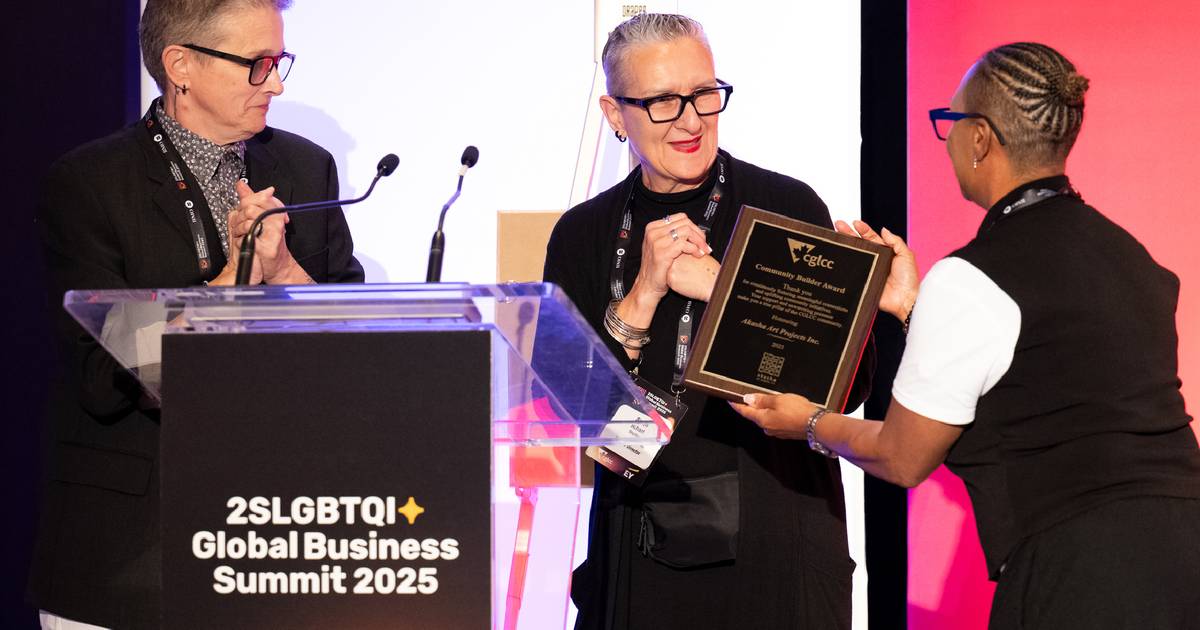Despite what you may think, 2SLGBTQI+ entrepreneurs are not a niche group. In Canada alone, there are over 100,000 queer and trans-owned businesses contributing more than $22 billion in economic viability and employing over 435,000 Canadians.
These are the people who service your car, cut your hair, roast your coffee – simply put, they’re everywhere. So, why are queer business people still facing challenges not felt by their straight cohorts?
The realities of discrimination
Darrell Schuurman, Founder and CEO of Canada’s 2SLGBTQI+ Chamber of Commerce (CGLCC), explains to blogTO that hurdles happen from the get-go.
“One in five queer or trans entrepreneurs experience challenges in starting or scaling their business, which includes things like access to capital, access to mentorship, and access to global supports and markets.”
“We know that they continue to face significant discrimination, and that one in four have lost business because of 2SLGBTQI+ ownership. What that’s done is cause a fear that’s led one in three businesses to purposely hide the fact that they have queer ownership.”
Years of progress
CGLCC was founded 20 years ago with the goal of driving social change for the 2SLGBTQI+ community through economic growth.
They do this through developing and implementing programming and initiatives that overcome identified challenges to help businesses thrive in a diverse economy, including a mentorship program, a 2SLGBTQI+ Global Business Summit in Toronto and connecting businesses with corporations who are looking to expand their supply chain.
 Plenty of progress has been made over the last few decades, but as Schuurman explains, the rise of anti-trans and anti-queer sentiment is setting the country back.
Plenty of progress has been made over the last few decades, but as Schuurman explains, the rise of anti-trans and anti-queer sentiment is setting the country back.
“If we’re trying to grow a thriving economy, how are we actually going to be able to do that if we’re continuing to exclude those who play an important role in that growth?”
Canadian values
EDI has become a buzzword amidst the current culture wars, but what equity, diversity, and inclusion actually do is help people who face additional hurdles get on the same playing field as everyone else. In fact, when new perspectives are heard, it can lead to new ideas and solutions, benefiting the economic landscape.
“If we’re going to continue to drive innovation, we need diversity of thought,” says Schuurman.
 Consumers can make a difference by supporting queer businesses through purchasing decisions. Investors are called upon to invest in these businesses, and the government must continue to implement procurement policies that actively recruit and engage diverse, queer, and trans-owned businesses within supply chains.
Consumers can make a difference by supporting queer businesses through purchasing decisions. Investors are called upon to invest in these businesses, and the government must continue to implement procurement policies that actively recruit and engage diverse, queer, and trans-owned businesses within supply chains.
For Canada to truly be strong and free, every entrepreneur must have the opportunity to contribute fully, not despite who they are, but because of it. While many business and political leaders are damaging our economy through tariffs, Canada has the special opportunity to lead with Canadian values.
Visit the CGLCC website to learn more.














